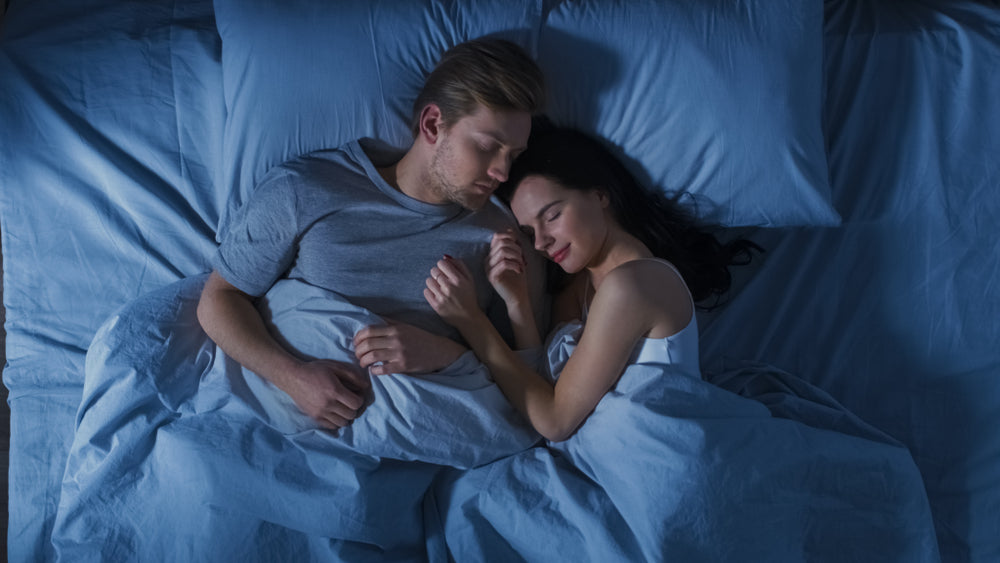Sleep is one of the most important things that we do everyday. We crave sleep, share memes, about sleep, and complain when we don’t get enough of it. But how much sleep should we actually be getting per night? Most people will tell you it’s a straight 8 hours, but the truth is that how much sleep you need depends on a lot of factors.
We wanted to revisit this often-asked question and put some rumors to rest (see what we did there?).
How Much Sleep is Necessary?
The NSF (National Sleep Foundation) brought together a panel of 18 experts in a variety of different fields of medicine from OBGYNs to Psychiatrists and Pediatricians to Geriatric specialists. Together, they completed a very comprehensive study over the course of two years that created new parameters for how much sleep different ages should be getting.
“Millions of individuals trust the National Sleep Foundation for its sleep duration recommendations. As the voice for sleep health it is the NSF’s responsibility to make sure that our recommendations are supported by the most rigorous science,” says Charles Czeisler, MD, PhD, chairman of the board of the National Sleep Foundation and chief of sleep medicine at Brigham and Women’s Hospital, “Individuals, particularly parents, rely on us for this information.”
Their Recommendations for Sleep Duration
After completing this study, they created this concise chart that recommends sleep times for several different age groups:
- Newborns (0-3 months): Sleep range narrowed to 14-17 hours each day (previously it was 12-18)
- Infants (4-11 months): Sleep range widened two hours to 12-15 hours (previously it was 14-15)
- Toddlers (1-2 years): Sleep range widened by one hour to 11-14 hours (previously it was 12-14)
- Preschoolers (3-5): Sleep range widened by one hour to 10-13 hours (previously it was 11-13)
- School age children (6-13): Sleep range widened by one hour to 9-11 hours (previously it was 10-11)
- Teenagers (14-17): Sleep range widened by one hour to 8-10 hours (previously it was 8.5-9.5)
- Younger adults (18-25): Sleep range is 7-9 hours (new age category)
- Adults (26-64): Sleep range did not change and remains 7-9 hours
- Older adults (65+): Sleep range is 7-8 hours (new age category)
You can see in this chart that these new times do change the previously recommended nightly sleep for most age groups--in fact, it creates a few new age groups altogether. “The NSF has committed to regularly reviewing and providing scientifically rigorous recommendations,” says Max Hirshkowitz, PhD, Chair of the National Sleep Foundation Scientific Advisory Council. “The public can be confident that these recommendations represent the best guidance for sleep duration and health.”
Sleep Quality
It’s not just about how much sleep you need to get but the quality of sleep you’re getting. Getting a good 8 hours in doesn’t really matter if you’re not sleeping well. It’s imperative that you pay close attention to several differences you may experience after a good and a bad night of sleep.
You may notice that you have more energy or are happier and more alert after a night of great sleep. In contrast, a poor night of sleep may result in you feeling tired and sluggish or even more irritable throughout the day. While it’s important to prioritize your mental and emotional health, you also need to take into consideration how important sleep is to your physical well being. If you make several lifestyle changes and still are experiencing poor sleep, it’s possible that you may be suffering from obstructive sleep apnea, or OSA.
OSA and How to Find Out If You Have It
If you are following the NSF’s guidelines for recommended sleep and trying your best to be healthy, it’s possible you may still struggle to wake up feeling refreshed and well-rested. If this is the case, it’s possible you may be suffering from OSA, or blockages to your airway that occur during sleep.
If you still feel tired when you wake up in the morning, it’s important to get tested for sleep apnea sooner rather than later. ApneaMed offers the comfort and security of sleep apnea testing in your own home. You simply fill out this form and get put in contact with a patient care representative who will help you get the testing equipment mailed directly to your home.
The process is rather simple. After you receive your equipment, you simply wear the device for one full night of sleep and mail it back to ApneaMed. Then, you get your data interpreted by a board-certified sleep physician who will give you a diagnosis and prescription for your CPAP or AutoPAP therapy.
The process is as simple and snuggling into your bed and will ensure that you start getting the incredibly restful nightly sleep you deserve.

